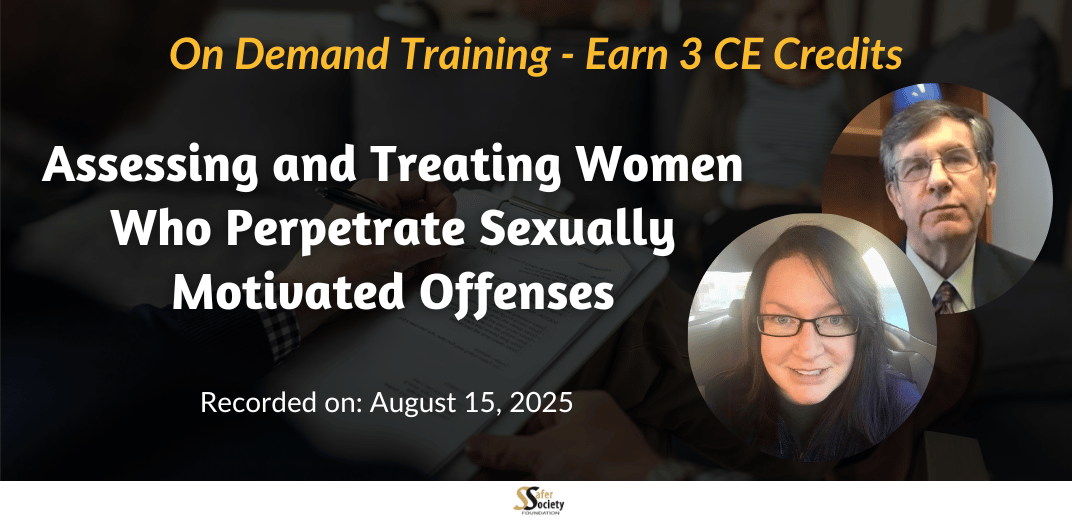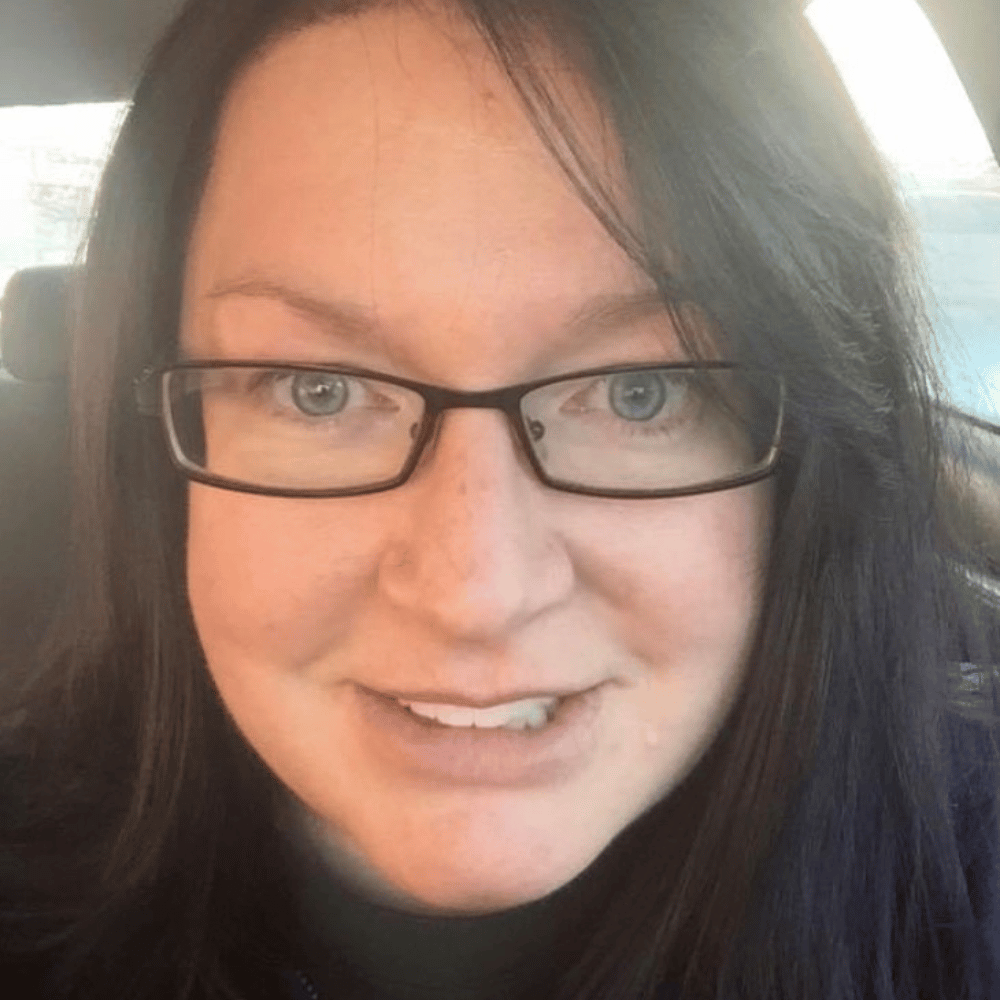
Assessing and Treating Women Who Perpetrate Sexually Motivated Offenses
Already purchased an On Demand training?
Click here to access your Safer Society On-Demand Training Center account.
 The fields of assessing and treating women who have committed sexually motivated offenses continue to grow and evolve. The extant research literature provides an empirical basis for assessing women from a gendered perspective. This perspective is a person-centered, strength-based approach that takes into consideration how gender affects patterns of offending for women. When viewed from this perspective, women who perpetrate sexually motivated offenses require risk assessment and treatment approaches that differ from approaches used with their male counterparts. This workshop provides empirically supported guidance related to assessing and treating women who have committed sexually motivated offenses.
The fields of assessing and treating women who have committed sexually motivated offenses continue to grow and evolve. The extant research literature provides an empirical basis for assessing women from a gendered perspective. This perspective is a person-centered, strength-based approach that takes into consideration how gender affects patterns of offending for women. When viewed from this perspective, women who perpetrate sexually motivated offenses require risk assessment and treatment approaches that differ from approaches used with their male counterparts. This workshop provides empirically supported guidance related to assessing and treating women who have committed sexually motivated offenses.
Dawn Pflugradt, PsyD, LP, LCSW and Bradley P. Allen, PhD, JD—two of the leading experts in this field—developed this training to highlight key research findings and provide current insights and best practices based on their decades of experience working with women who have sexually abused. They cover topics such as:
- Different pathways to offending by women
- Available risk assessment measures and protocols
- Using a gendered approach, as opposed to a gender-sensitive or gender-neutral approach, to assessment and treatment
- Specific treatment needs of women who have sexually abused
This training aims to give attendees clear, useful strategies they can apply right away to support women more effectively and prevent further sexual harm.
1) Describe the factors and circumstances that contribute to offending behaviors in women
2) Identify recidivism base rates for sexual offending perpetrated by women.
3) Analyze the limitations of using male-focused risk assessment tools when evaluating risk in a female population.
4) Explain the key domains involved in treatment assessment for women who have committed sexually motivated offenses
Audience
The primary audience for this training includes professionals who work with adults exhibiting problematic or harmful sexual behaviors. Specifically, it is intended for social workers, psychologists, clinical counselors, and interested paraprofessionals who are involved in the assessment, treatment, or management of women who have committed sexually motivated offenses.
Content Level
Disclosure
Continuing Education Approval
American Psychological Association (APA)
Safer Society Foundation, Inc. is approved by the American Psychological Association (APA) to sponsor continuing education for psychologists. Safer Society Foundation, Inc. maintains responsibility for this program and its content.
Association of Social Work Boards (ASWB)
Safer Society Foundation, Inc., provider #233, is approved to offer social work continuing education by the Association of Social Work Boards (ASWB) Approved Continuing Education (ACE) program. Regulatory boards are the final authority on courses accepted for continuing education credit. ACE provider approval period: 06/06/2025—06/06/2026. Social workers completing this course receive 3 clinical continuing education credits.
Who's Presenting

Dawn Pflugradt, PsyD, LP, LCSW
Dawn M. Pflugradt, Psy.D., is a licensed psychologist (Iowa and Wisconsin) and licensed clinical social worker (Wisconsin) specializing in forensic, correctional, and clinical psychology. She holds advanced degrees in clinical bioethics, clinical psychology, and social work. Dr. Pflugradt has been qualified as an expert witness in multiple jurisdictions. Dr. Pflugradt works as a risk assessment specialist and sexually violent person evaluator for a midwestern Department of Corrections, maintains a private forensic psychology practice, and holds an appointment as professor of psychology at the Wisconsin School of Professional Psychology. She also serves on the scientific advisory board for the International Association for the Treatment of Sexual Offenders (IATSO), is an ATSA Fellow, and a SAARNA certified STATIC-99R, STABLE-2007, ACUTE-2007 and ODARA trainer.
In addition to her years of clinical experience, Dr. Pflugradt has published numerous articles, practice guidelines, books, and book chapters in the areas of developmental neuropsychology and criminology, the latter focusing on individuals who commit sexual and violent crimes.

Bradley P. Allen, Ph.D. J.D
Brad Allen, Ph.D., J.D. is a licensed psychologist with advanced degrees in psychology, sociology, law and epidemiology. In addition to having extensive experience in the treatment and assessment of sex offenders, he has an eclectic research background publishing in the areas of developmental disabilities, gerontology and sex offenders.
